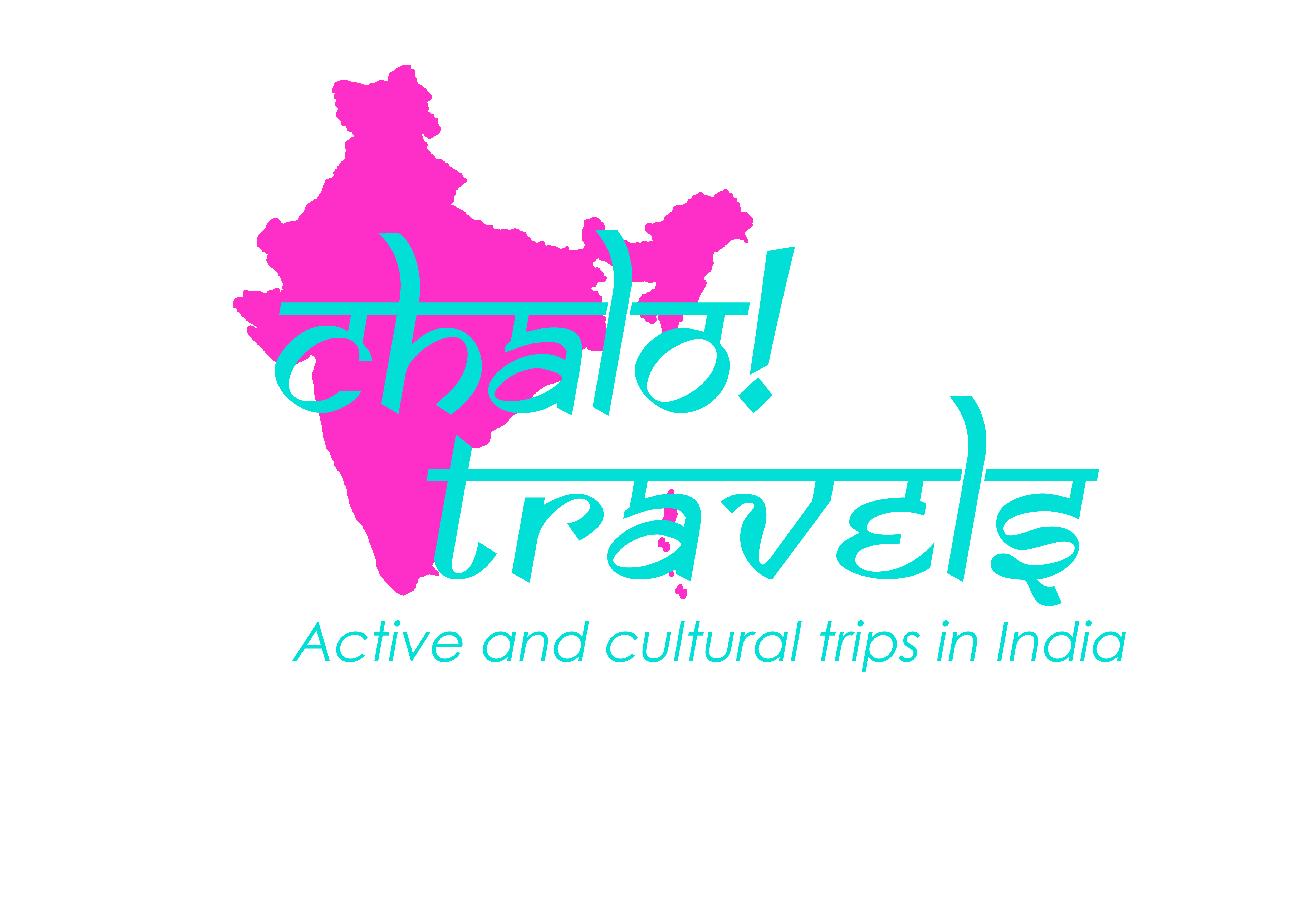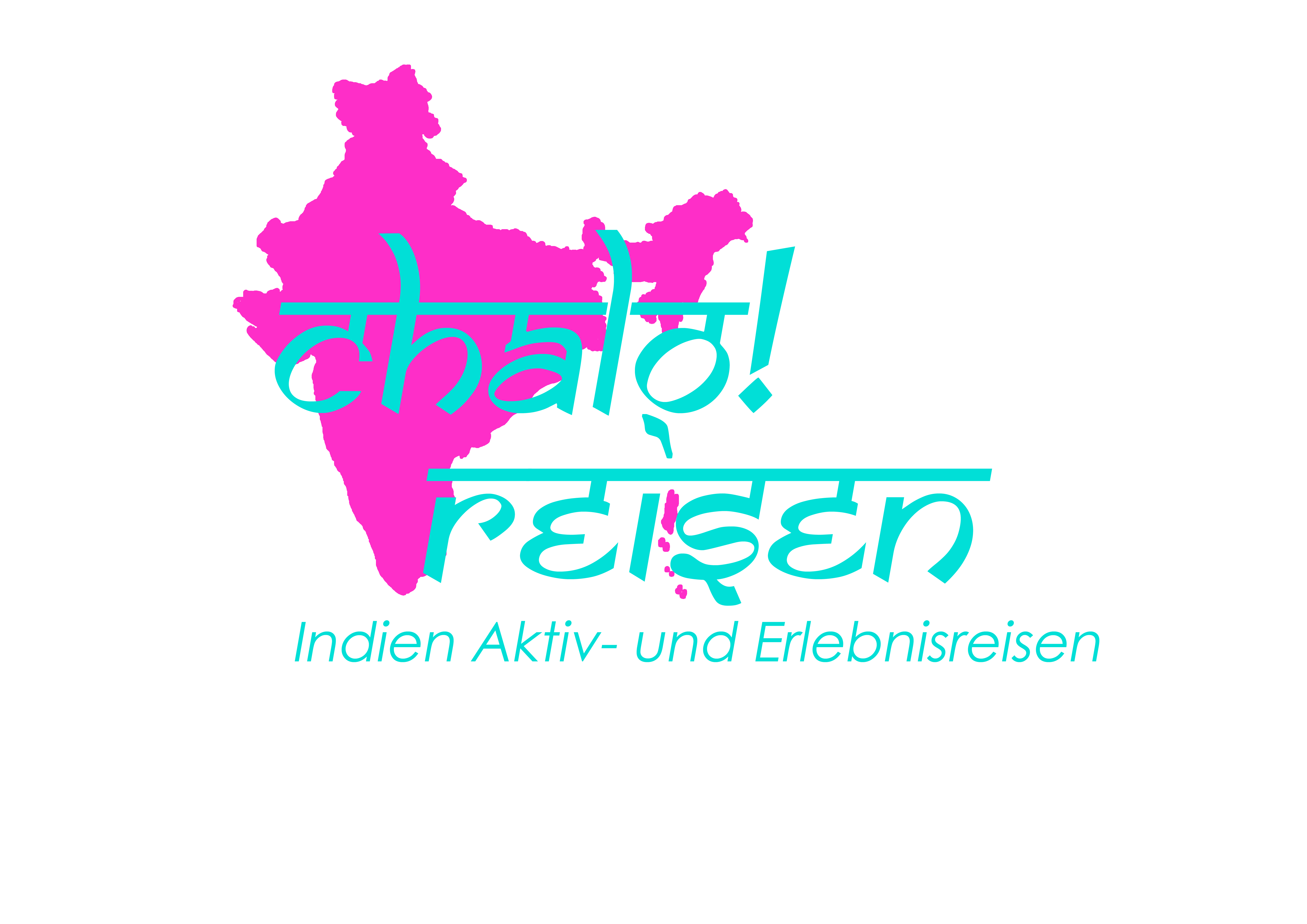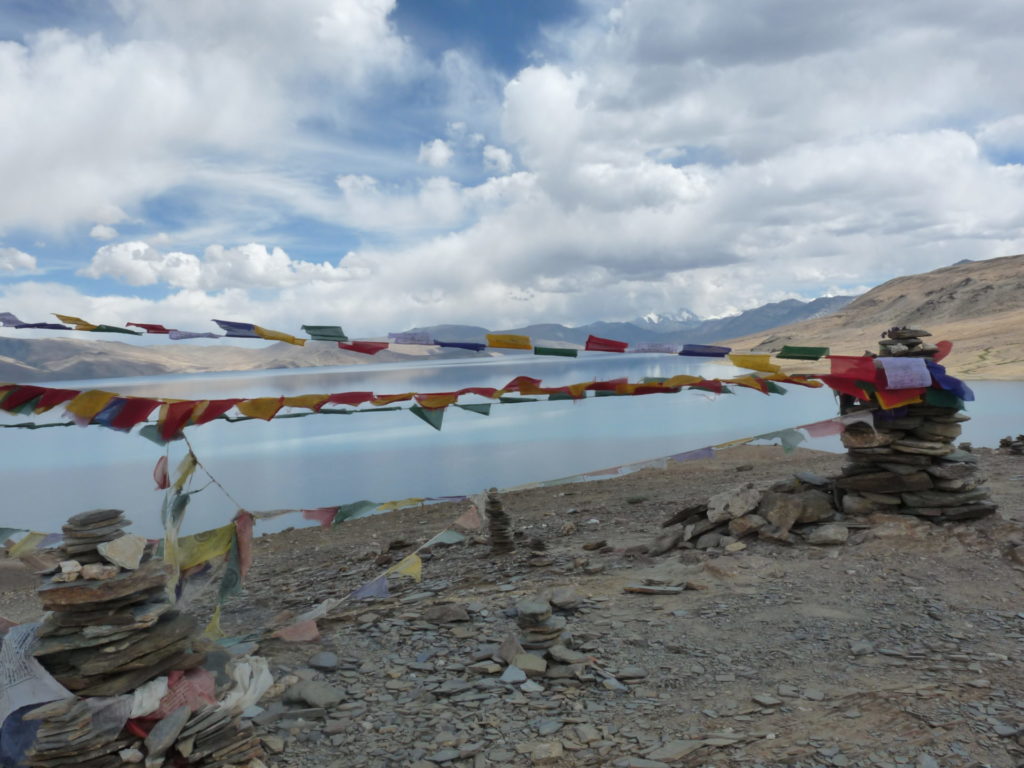- Sport & Abenteuer Reisen
- Trekking Reisen
Overview
This eight-day trek starts 70 km from Leh from the village of Rumtse and takes us over 7 passes, past the salt lake Tsokar and nomads camps to Karzok, a village on the beautiful Tsomoriri lake. The trek is located exclusively at over 4000 meters and leads us over the high Kyamayuru Pass (5400 m). Good acclimatization before the trek is necessary.
Program
Day 1 Arrival in Delhi and flight to Leh, check in to inn
We will pick you up from the airport in Leh and bring you to your accommodation. The day in Leh is meant for acclimatization. During dinner together we will brief you about the upcoming trek. (Overnight stay in the inn) -/-/B
Day 2 Leh Aklimatisation Day
A quiet day to get used to the altitude. We use the day for a little sightseeing in Leh. With a visit of Shanti Stupa and the Leh Palace. (Overnight stay in the inn) B/-/-
Day 3 Leh to Rumtse 4200 m (3 hours drive) to Kyamar 4050 m (4 hours trek)
In the morning we drive from Leh to Rumtse. From here we start our first stage of the day to Kyamar. (Overnight in the tent) -/L/D
Day 4 Kyamar to Tisaling 4200 m (6-7 hours)
Today we climb 2 passes. After a good breakfast we set off for the 4800-metre-high Kamur La, which gives us a breathtaking view of the Changthang mountain range. It goes down from the pass. If we are lucky, we meet nomads with their herds of yaks and goats. Then it goes uphill again to the 4850 meter high Mandalchan La Pass. We go down to our camp. (Overnight in a tent) B/L/D
Day 5 Tisaling to Ponganabu 4550 m (6 hours)
It goes up to our third pass, the 4900 meter high Shibuk. We enjoy the view of the surrounding mountains and the salt lake Tsokar. From here we go down for 4 hours to our camp near the lake. (Overnight in a tent) B/L/D
Day 6 Ponganagu to Nuruchen 4500 m (6 hours)
We first hike along the Salt Lake and have the opportunity to observe rare birds. We leave the lake behind and make our way to our next camp. Here is a small abandoned monastery nearby. (Overnight in a tent) B/L/D
Day 7 Nuruchen to Gyama Barma 5100 m (7 hours)
It goes to the Horlam Kongka Pass above 4900 m and then down to Rajungkaru, a settlement of nomads. Then we go up to the second pass today, the 5410 m high Kyamayuru. Our current camp is located at over 5000 meters and it can get very cold at night. (Overnight in a tent) B/L/D
Day 8 Gyama Barma- Base Camp 5200 m (7 hours)
We climb another pass, the Kartse La (5300 m), then we go down a bit. We cross a river and then climb up to the Base Camp of Yalung Nyauling La. We have an overwhelming view of high snow-capped mountains. (Overnight in a tent) B/L/D
Day 9 Base Camp to Karzok (5 hours)
Today we pass our highest and last pass, the 5450 meter high Yalung Nyauling Pass. During our long descent to the village of Karzok we enjoy the view of the 24 km long and 6 km wide Tsomoriri lake. After reaching the camp we can explore the small village of Karzok (overnight in the tent) B/L/D
Day 10 Drive from Karzok to Leh (7 hours)
After our breakfast we make our way back to Leh. We check into our hotel. (Overnight stay in the inn) B/-/-
Day 11 flight Leh-Delhi, departure back home or continue with your India Trip (B/-/-)
We say goodbye to each other and take you to the airport.
Services
- Trained trekking and tour guide
- Cook and helper
- horses
- 7 nights accommodation in 2-man tents (1-man tent surcharge)
- Kitchen tent
- Dining and staying tent
- Toilet tent
- 7 days full board (breakfast, lunch packages, dinner and snacks)
- filtered or boiled during the trek
- Transport from Leh to the start of the trek
- Transport from the end of the trek to Leh
- Airport transfer
- 3 nights with breakfast in Leh
International flightnational flight (available at an additional cost)Visaunmentioned meals and drinks
Highlights

Tsomoriri See 
Camp 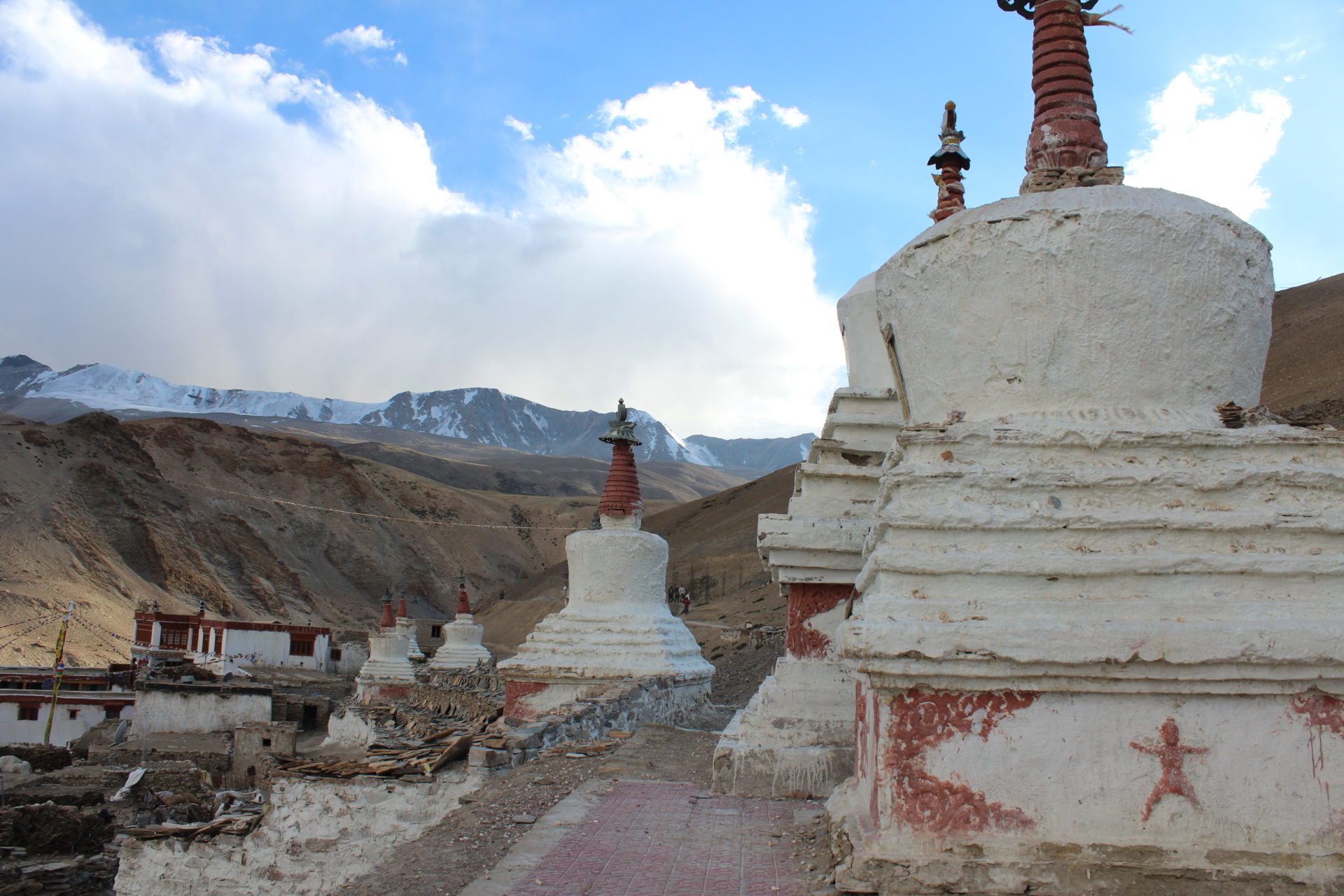
Karzok 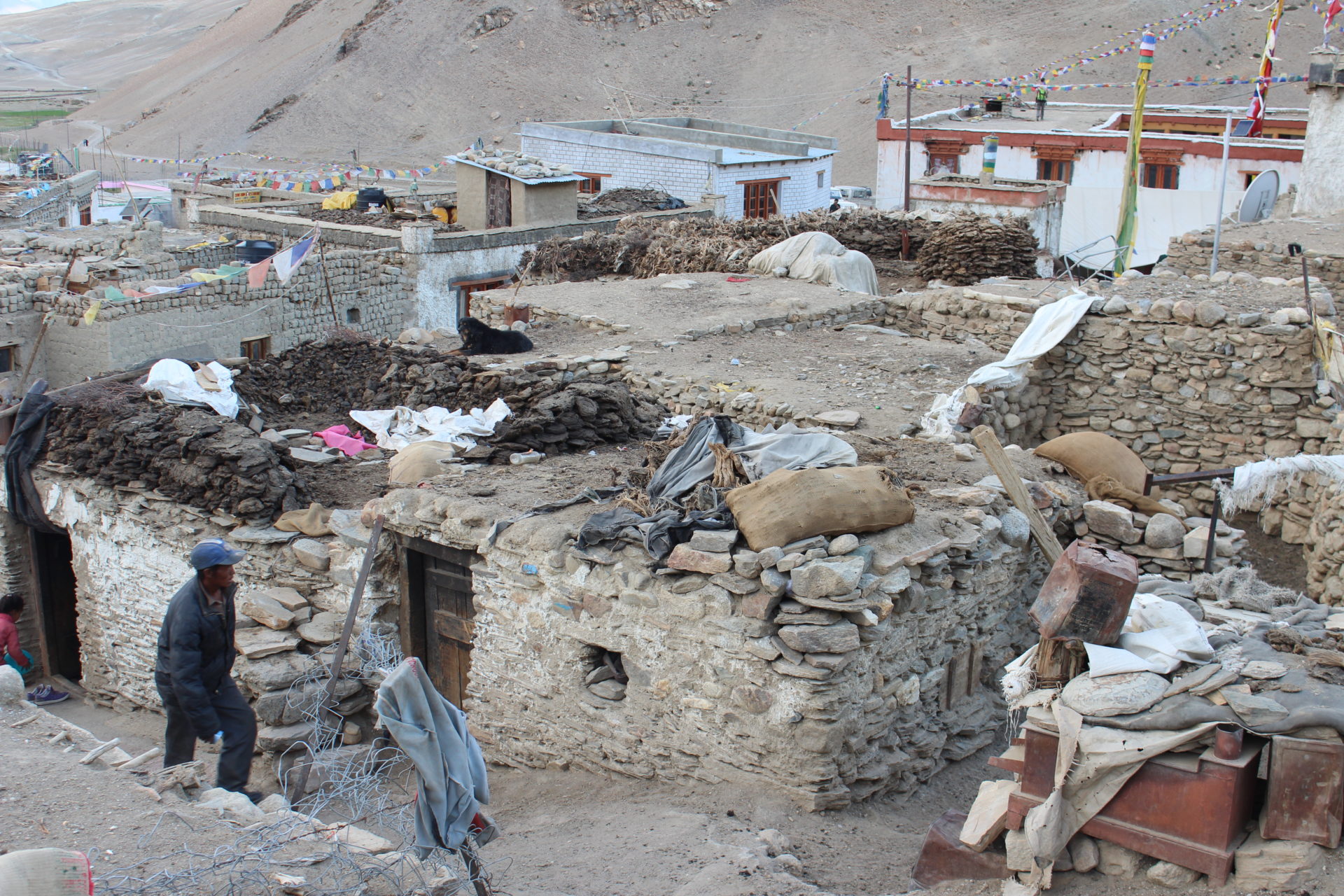
Karzok 
Pass 
Acho leads me on his horse 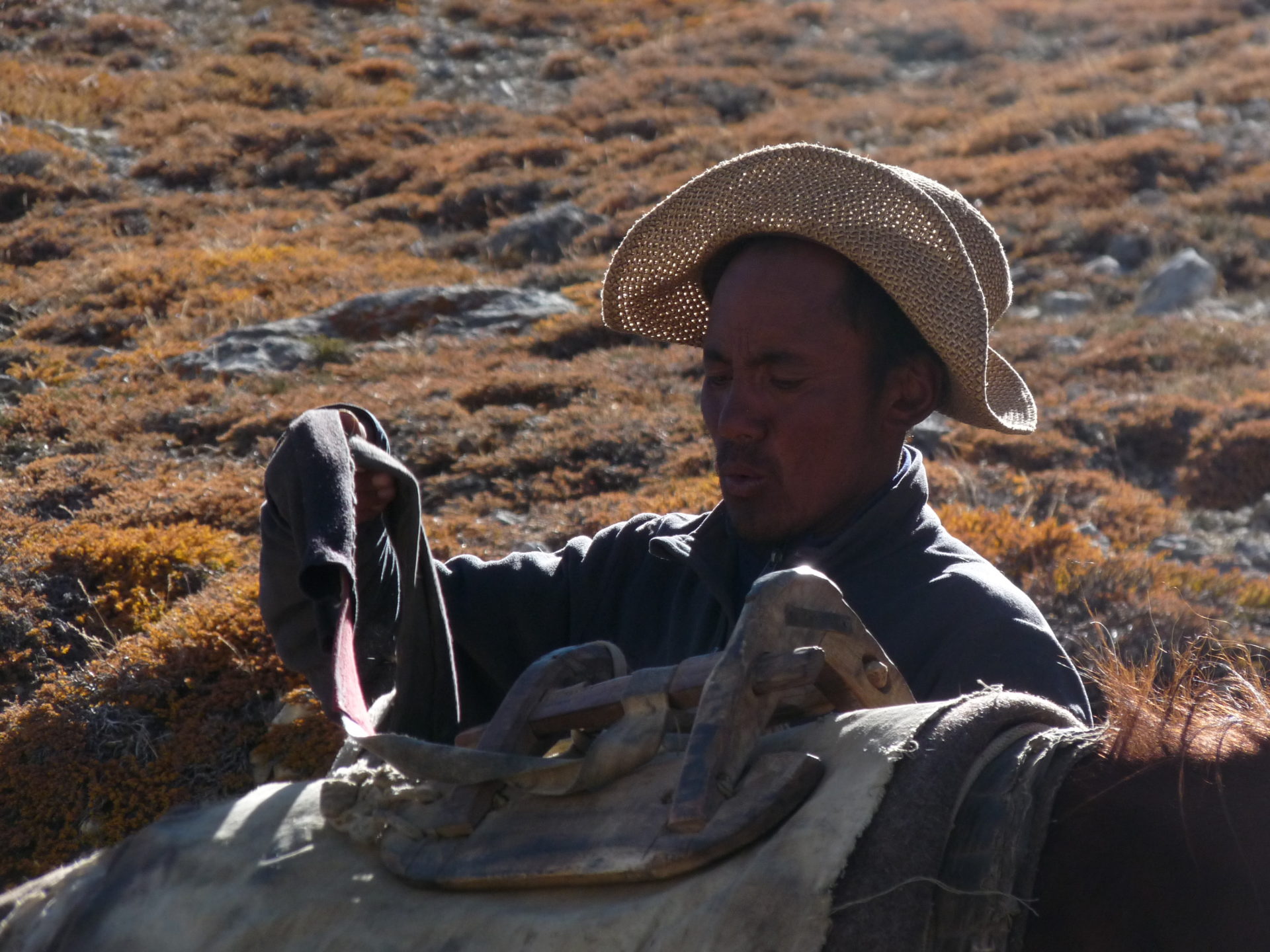
Our Ladakh horseman 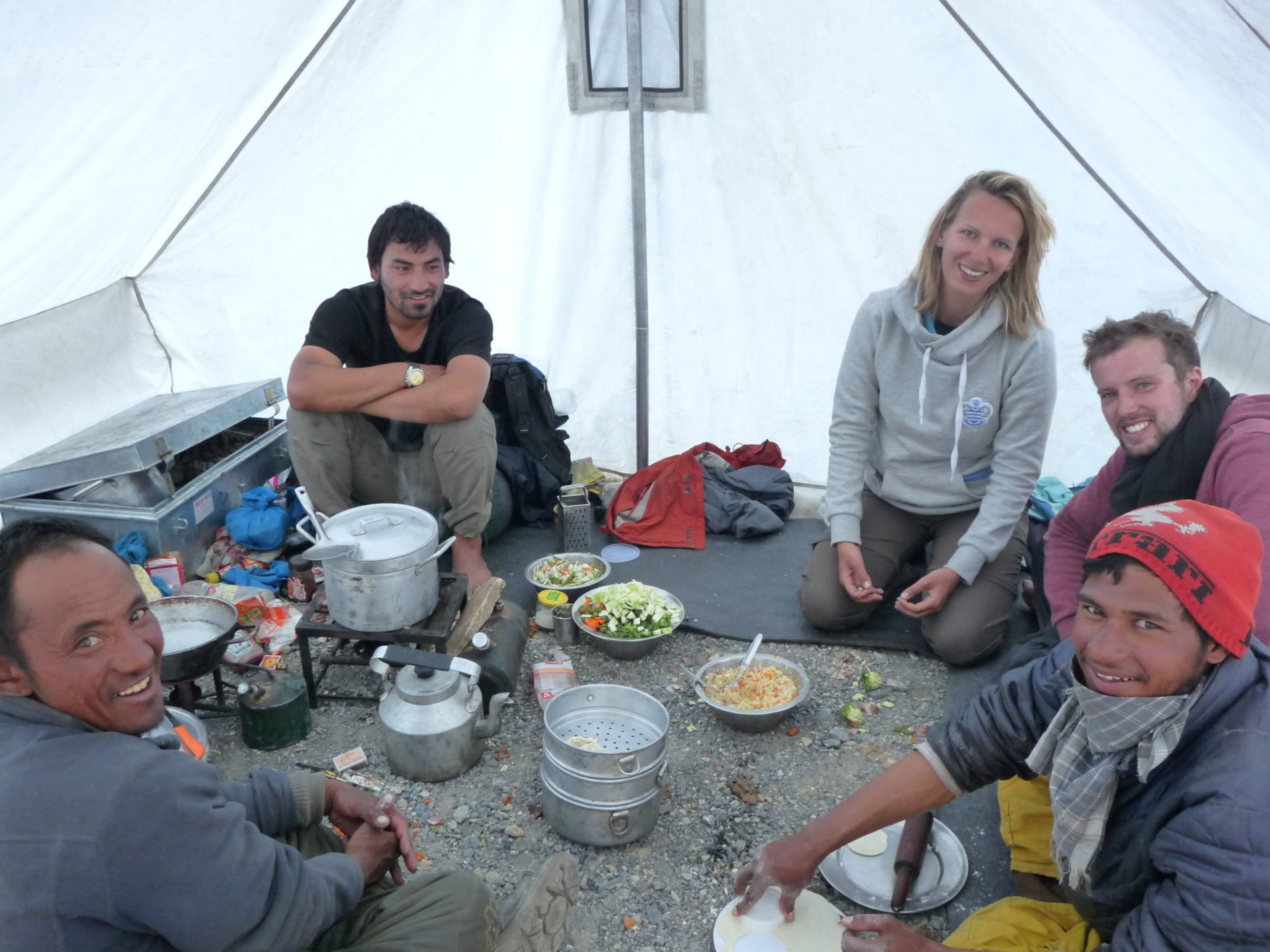
When cooking together with Acho 
Our camp on the 11th day 
Making Cheese 
The Nomad village on the 10th trekking day 
View of the Tso Kar and Rungchunkaru, a nomadic settlement and our 9th camp 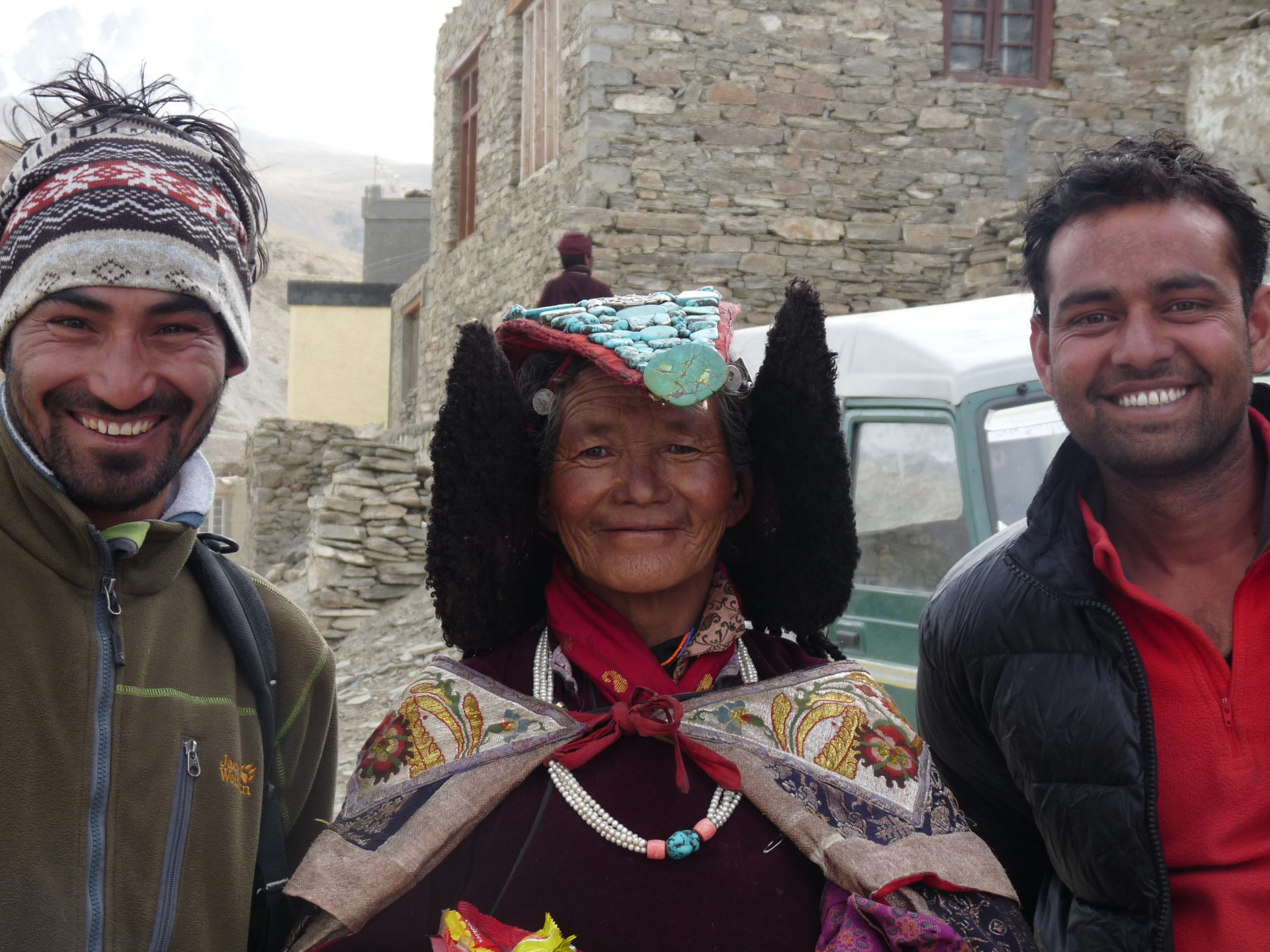
Local costume in Karzok 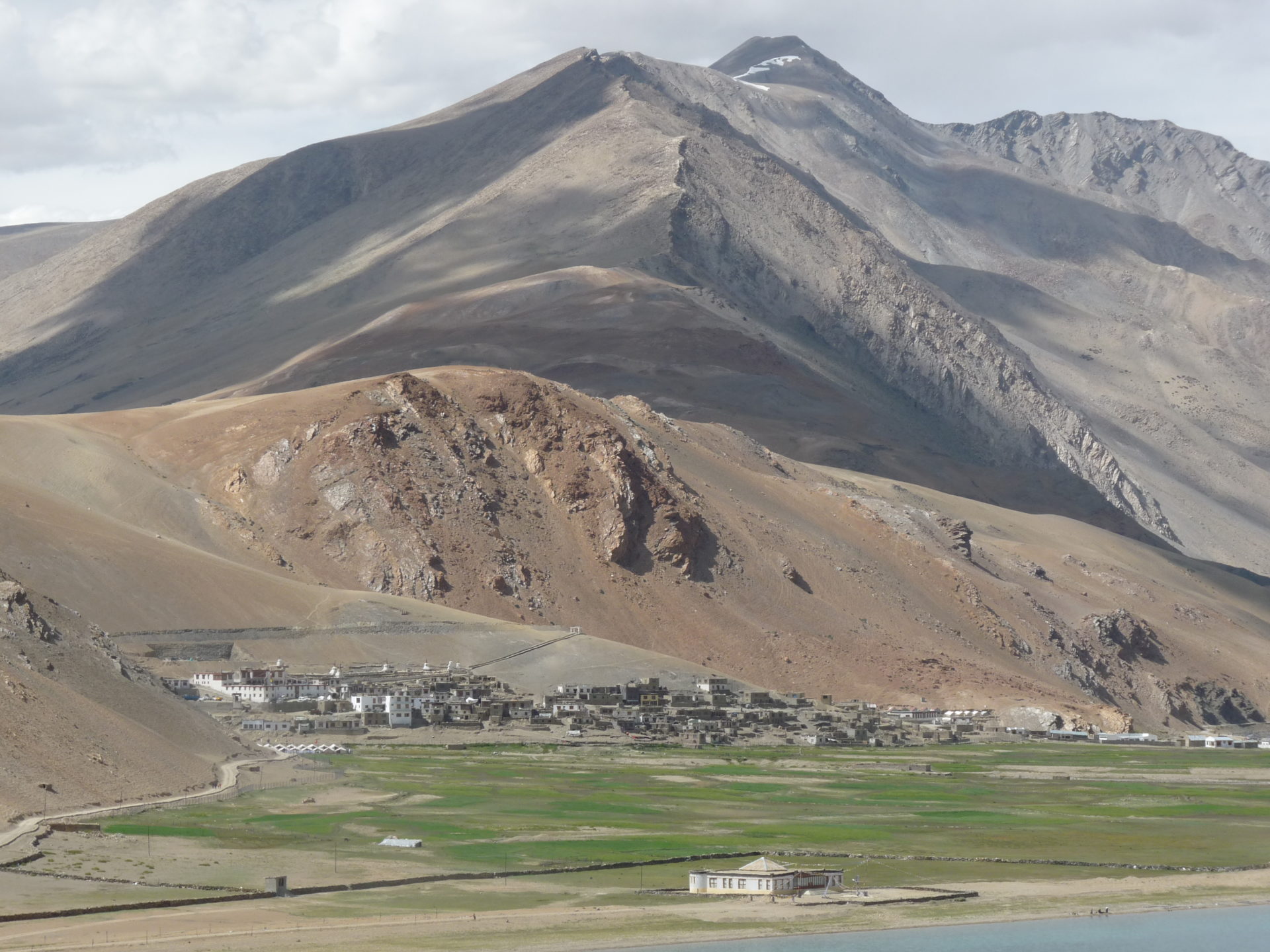
The first village in Ladakh: Karzok 
Near Karzok, view of the lake 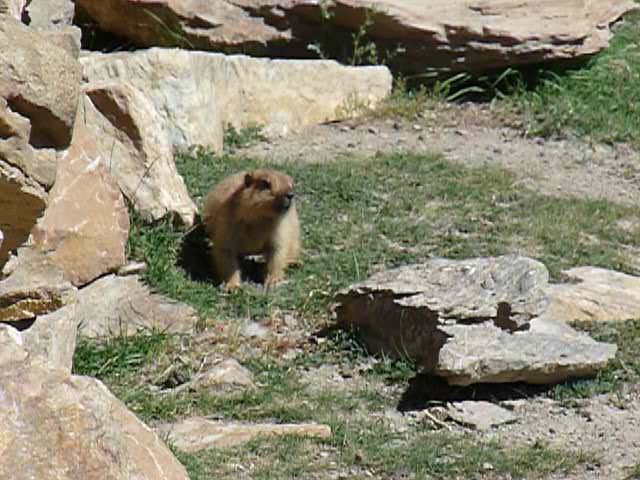
Day 6: a rich animal world met us today 
Delicious Indian food in the dining tent 
Ziegenhirte 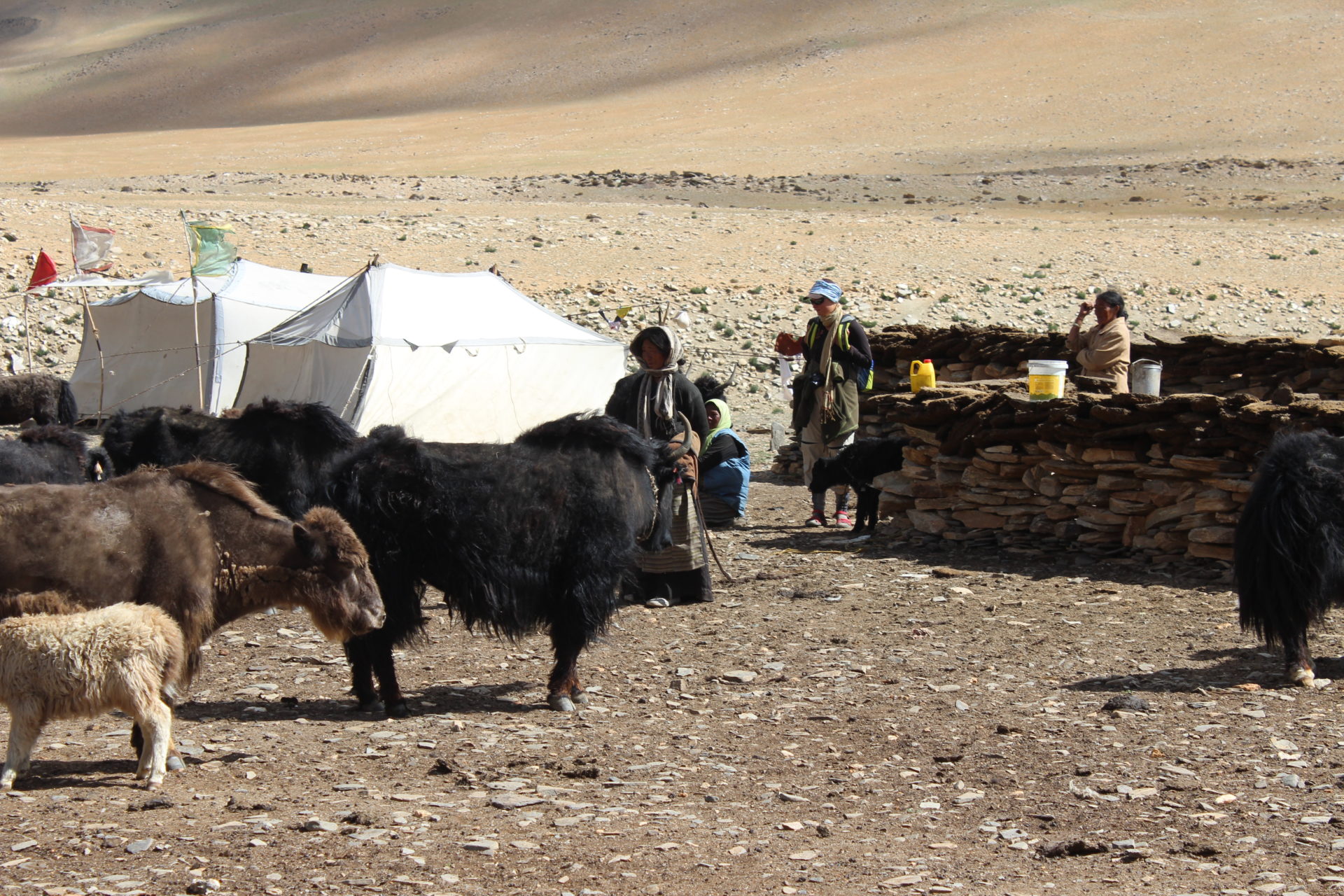
Nomaden camp 
Pass 
great scenery during the tour 
Leh 
Hemis Festival 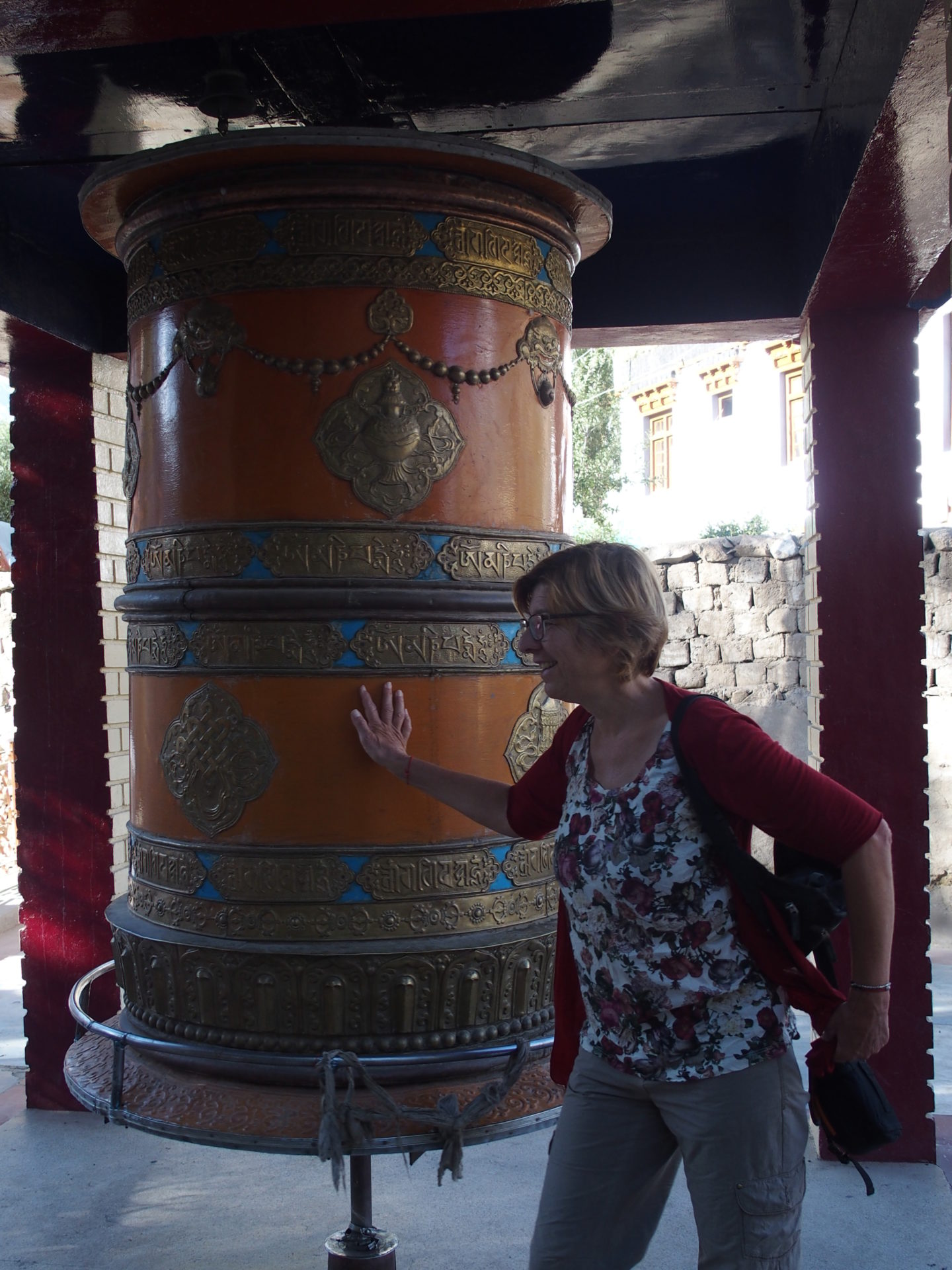
Kloster 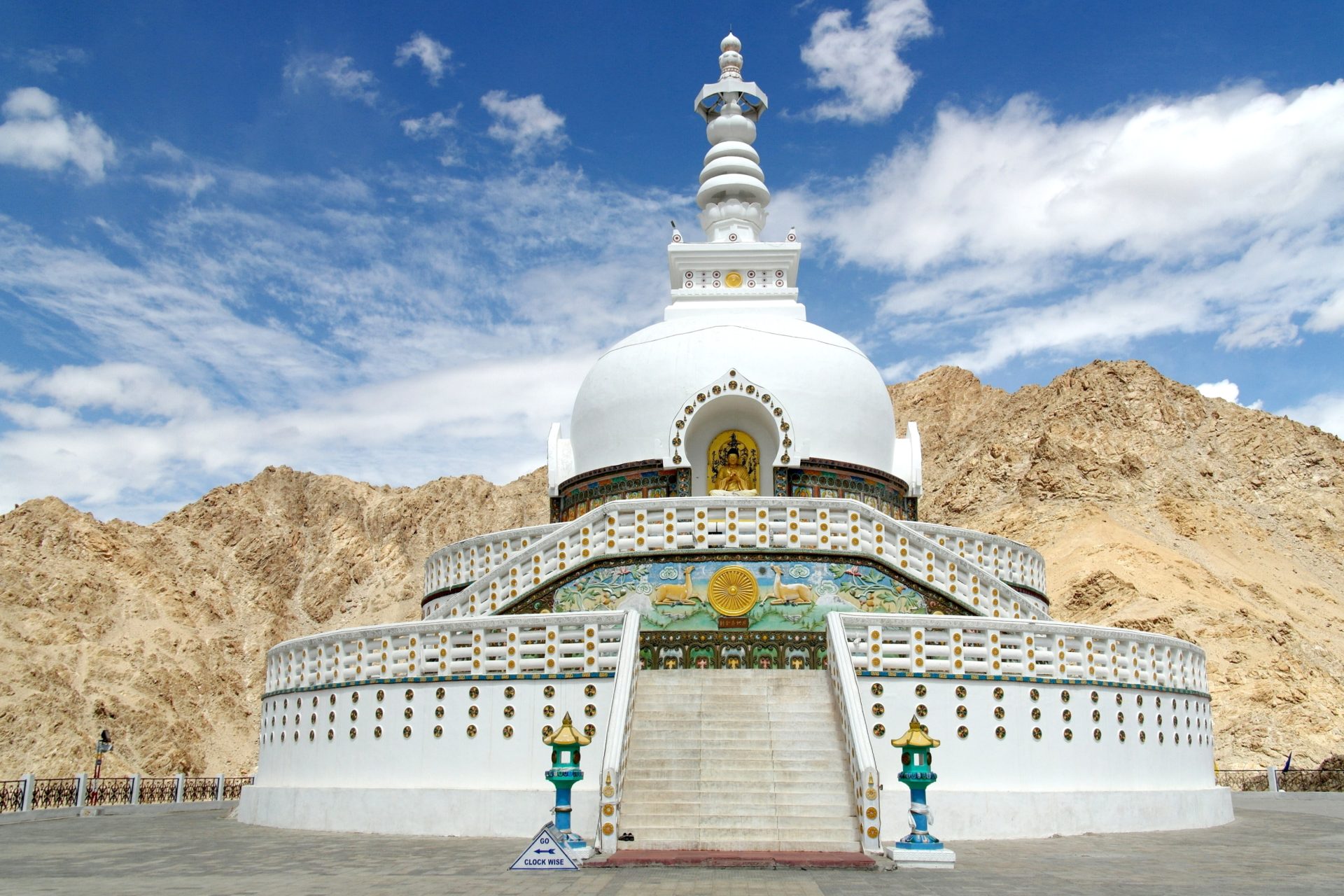
Shanti Stupa 
Monastery Ladakh 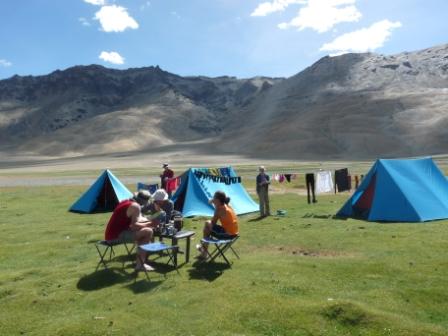
Camp
Prices and Dates
This trek is possible from June to September!
Price on request
Tour Info
Requirments
This trek is challenging due to its altitude between 4000 m and 5500 m. The daily stages are relatively long and good endurance is necessary.
Information about the Trekking Tours with Chalo! Travels
Mountain guide and trekking team
On all our treks we have at least one (for larger groups of 6 participants two) trained local mountain guide. Our mountain guides have all completed at least the Indian mountaineering training, many of them have also completed the advanced courses.
They are familiar with the trekking routes and know the terrain excellently. All our mountain guides speak English.
In addition, there is a local team consisting of a cook (if the group consists of only two participants, the mountain guide also takes over the tasks of the cook), helpers, horsemen with horses or Nepalese porters, depending on the type of trek.
All our team members have been working with us for years, are very friendly and always strive to provide our guests with a great trekking experience. Their English (besides of the Guide) is rather mediocre or non-existent, but this is not necessarily a hindrance to communicating with them.
Trekking Routes
The trekking routes are designed according the skills of our guests and are all feasible for a person with a good fitness level, unless otherwise mentioned. The daily routes are between five and eight hours long (with breaks) and an average increase of around 500-800 metres of altitude is completed.
In between, rivers may have to be crossed. The paths are partly well developed, but sometimes also almost non-existent. On our trekking routes there are hardly any villages in between, so we will take enough food for the whole tour.
On our treks we cross passes, snow or glaciers. On steep slopes, we have safety equipment with us.
Daily routine (Depending on the length and intensity of the trek, the times may vary)
7: 00 am Get up with Tea
7:30-8:30 am Breakfast
7:00-9:30 am Dismantling of the camp
8:00- 9:30 am Start Trek
1:00 pm Lunch on the way
3:00-5:00 pm Arrival at the camp and camp construction
3:30-5:30 pm Snacks
7:00 pm Dinner
Altitude and altitude sickness
Altitude sickness is a very important topic that should not be underestimated, especially during our trekking tours in the Indian Himalayas. At altitudes above 3500 m, our body has to slowly get used to the low air pressure, which also causes less oxygen to enter our lungs. The first signs of altitude sickness are headaches, which are accompanied by dizziness, nausea, insomnia and loss of appetite. It becomes problematic when water accumulates in the lungs and brain and edema occurs. Then only the immediate descent to lower altitudes will help. To prepare for the heights on our treks, we will either spend a few nights at high altitudes before the trek or slowly ascend during the trek to acclimatize. If we notice that there are problems with our guests (each person is otherwise able to acclimatize, regardless of age, gender and fitness level), it may happen that either the entire group or the concerned participant descends/returns with a team. In addition, it makes sense to take an emergency drug for altitude sickness. For this, it is best to consult the pharmacy or the travel doctor. For certain treks we will also have oxygen with us.
Luggage
Each trekking participant is responsible for his own clothes and personal belongings. Depending on the trek, we are either with horses or porters. If we have load horses, one bag per participant can be loaded onto the horse. In the case of treks with porters, all personal luggage must be carried independently. Tents, sleeping bags, mattresses and food are carried by our porters.
For trekking tours with horses, a day backpack with space for the lunchbox, a water bottle and warm overcoat clothing should be taken with you. Here to the complete packing list for our trekking tours.
Packing list for trekking tours
- sleeping bag at least -10°C
- large backpack or soft carrying bag so that the load animals can carry the luggage
- Small carrying backpack for the day approx. 30-40 l with rain protection
- flashlight/headlamp
- 2 refillable water bottles
- hiking poles
- passport and passport copy
- camera with spare battery and memory card
- headgear as sun protection
- Good Sunglasses
- cap
- Scarf, Buff
- Gloves
- wind-proof trekking pants
- trekking pants
- Functional Underwear Long
- hiking boots
- socks thick and thin
- sneakers, sandals and/or slats
- windbreaker
- Warm Jacket
- fleece sweater/jacket
- Tshirts
- sunscreen, lip balm min. Protection 40
- fat cream
- water purification tablets (boiled and filtered water is provided)
- own medications for headaches, nausea, digestive problems, colds)
- bubble patches and dressing material
- own hygiene articles
- Toilets Paper
- hand disinfection
Meals
During the trek there will be a vegetarian full catering. Water is either boiled or we have a water filter with us.
Breakfast (daily selection):
- Coffee/Tea
- Oatmeal porridge/muesli/cornflakes/Indian porridge
- Indian breakfast
- Sliced fruit/vegetables
Lunch (mostly lunchbox), sometimes warm in the camp
- Sandwiches/Indian (rice, chapati, vegetables)/potatoes
- Juices
- Chocolate
- Fruit
Snacks
- Tea/coffee
- Cookies
- French fries/Indian snacks
Soup
Dinner (depending on the length of the Trek mix of Indian/Chinese/Continental)
- Vegetable dish
- Lentil dish
- Rice/noodles
- Chapati
- Salad
- Dessert
Accommodation and camp
We have very comfortable and spacious two-man tents. Our mattresses are practical but simple if there are problems with sleeping on hard surfaces, please take your own mattress with you or order from us. Our sleeping bags are freshly washed and have a very good quality with comfort zone up to -5°C/extreme zone up to -20° C. It is recommended to bring personal indoor sleeping bags.
In addition, we have a spacious dining tent with tables and chairs, a kitchen tent for the team and a toilet tent. For treks up to 4 people, the kitchen tent can also act as a dining tent at the same time.
For trekking tours with porters, we will take our smaller, lighter tents with us and do without a toilet tent.
Weather
In the Himalayas, temperatures fluctuate widely. While it can get warm up to 25°C during the day and the sun is not only warming, but also very intense (sun protection is a must), it can also cool down significantly below the minus-grade at night, especially in the months end of September and October, as well as in June. There may also be weather changes with snow on the passes.
-
5
Überschrift
Lorem ipsum dolor sit amet, consetetur sadipscing elitr, sed diam nonumy eirmod tempor invidunt ut labore et dolore magna aliquyam erat, sed diam voluptua.
